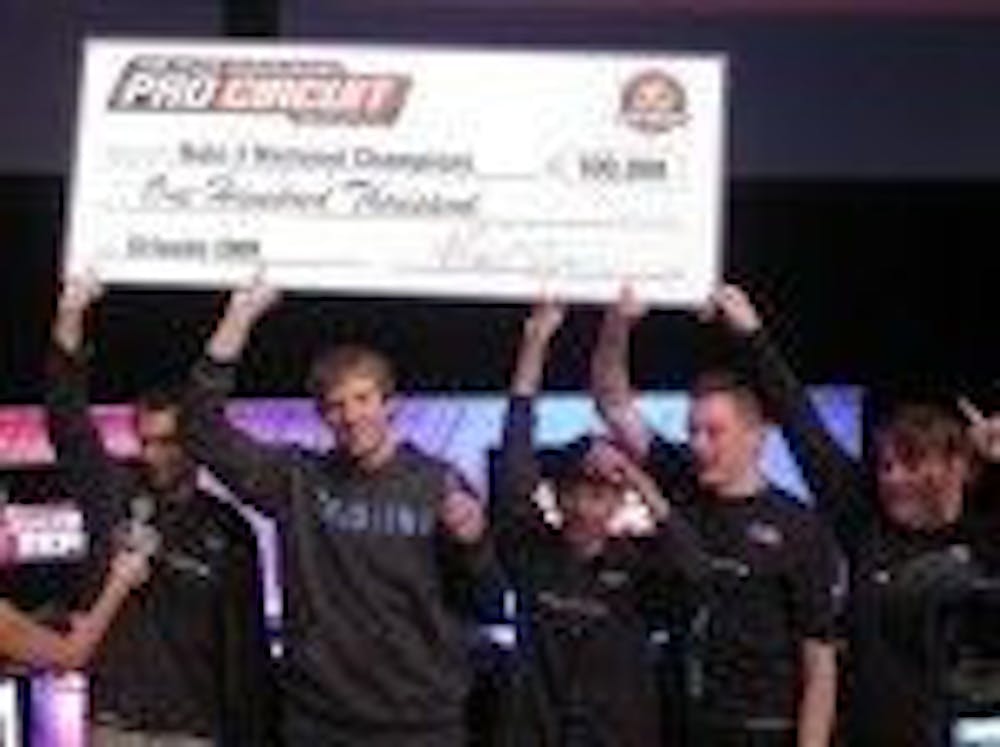The video game industry gives people who are not all-star athletes or Olympic medalists the chance to compete against one another for fame and glory through video game tournaments.
The tournaments highlight big name players who compete against others for cash prizes.
"It's almost the same feeling an athlete who has been in front of a stadium full of fans has had," Michael Miller, a frequent video game tournament participant and education major, said. "Although there's that rush of people actually watching you while you're playing for big money, there's a darker side to all of it as well."
Huge crowds filled with fans from all over the world, people shouting and chanting a player's name and thousands of people watching a player's every move from inside their own homes are just some of the enormous pressures competitive players endure. These big name players are generally put under a lot of stress and need something to help them cope with it all.
According to a former competitive player, who asked to remain anonymous, Adderall is the key to some player's success. It's a way for players to stay focused and not crack under all the pressure. Some players believe it actually helps them play better, and it helps them keep playing in high stressed matches that could last for hours.
For competive gamers, Aderall allows them to sit down and complete challenging tasks without the distractions. It heightens the attention, energy and overall awareness of someone to the point where it can also be abused as a narcotic drug.
"Adderall in competitive gaming is the equivalent to steroids in athletic sports, but it's not banned like steroids," Aston Keaton, University of Memphis student and competitive gaming player, said. "I've never used it at a tournament, but you can't really tell when someone's on it."
According to Keaton, not only is one's focus completely sharpened, but also their minds are focused on one thing, and they must accomplish it. It's a euphoric experience for people who are plagued by distractions.
Performance enhancing drugs have long existed in the realm of competition, be it an athletic sport or a video game, but it's not the only thing that puts competitive gamers in the spotlight.
The fame and money that follows winning a tournament is unfamiliar to many casual gamers. With a taste of success, it can either build a person up or break them.
Winners of tournaments are faced with many challenges after the win. Wes Price, University of Memphis student and 2009 National Halo 3 Champion, (was able) to make himself into a high profile player, caring more about ranking rather than the fame and money that came along with it.
"Winning a tournament with a prize of $100,000 can be overwhelming at first," Price said laughing. "To be honest, I really didn't care about the money though. My biggest goal was to be the national champion, and I had a passion for the competition as well."
According to Price, winning a tournament is a sweet victory for a hard working gamer.
"People today still recognize me, which I find pretty shocking considering it was over five years ago," he said. "I just think if you can balance school, gaming and not getting in over you head, you'll be okay."
In a nutshell, competitive gaming is not only an outlet but also a way for others to make friends and memories that can stand the test of time.
For Miller, competive gaming goes beyond the competition. It's about meeting fellow gamers and making friends who share the same passion for gaming.
"Traveling to tournaments and meeting people in a competitive atmosphere is the main reason I go," said Miller. "People may not understand the scene, but you should never judge a book by its cover."




